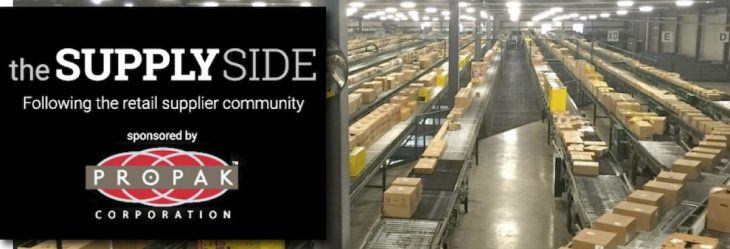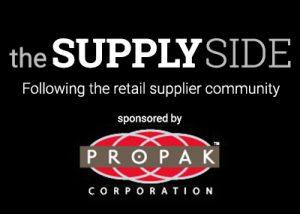The Supply Side: Challenges remain for CPG suppliers into 2018
by January 2, 2018 4:00 pm 734 views

2017 has been a challenging, confusing and dynamic year in retail, according to Nielsen’s consumer insights expert Jordan Rost. He said fast-moving consumer goods are seeing slow growth in sales over the long term.
“The playbook that led us to growth the past few years will not get us there in the future,” Rost said, during a recent webinar on the topic.
Rost said 2018 will be similar to the challenges experienced this year by suppliers who are facing flat sales in stores against competition from private brands, online offerings and subscription services that remove the need for shopping altogether for certain items.
Rost said there is a visible shift in how consumers are buying today, and that’s creating an erosion of sales in the consumer packaged goods categories. Health, personal care and pet care are three categories where online growth is quickly escalating.
Nielsen reports 44% of consumers surveyed in the past three months have purchased health products online. In personal care, the number was 42%, and in pet care it was 34%. At the lower end of the spectrum, just 8% said they bought fresh items online, and 7% said they purchased frozen items online in the 90-day period. Grocery and snacks were 22% and 28%, respectively.
Rost said e-commerce sales rose $6 billion from July 2016 to July 2017, while traditional retail sales growth declined. He said the battle to win shopper spend has never been more competitive. Companies who are geared to accelerate online sales in conjunction with mobile and in-store shopping experiences will reap the biggest rewards.
He warned, though, a category can shift from in-store to online rather quickly. Pet foods, which was one of the harder categories to convert online given the large package sizes and increased shipping costs, has made big strides in the past year. The catalyst was likely Chewy, the online alternative which was acquired by PetSmart for $3.35 billion in April.
Chewy offers the most popular brands of pet foods at competitive prices, with free one- to two-day shipping for orders more than $49. Expanded savings of 5% or more are awarded to customers who choose auto-ship replenishment.

CATEGORY EXCEPTIONS
Fresh, convenient and trendy foods are driving growth across the entire store, Rost said. Liquid tea saw a 19.4% increase in dollar sales between September 2016 and the next 52 weeks. The category also experienced a 23.7% uptick in unit sales. Liquid coffee has not done as well, but it did see a 7.4% growth in sales dollars, with 5.3% more units sold.
Convenience foods are also enjoying big growth in brick and mortar, sushi made fresh in the deli is one of the hottest growth areas garnering 15.3% more sales in dollars, with units rising 15.4%. Other convenience plays include combination lunches up 14.1% in sales and rising 11.7% in units sold. Packaged meals are also growing at a pace of 8.1% in dollars and 7.1% in units.
Healthy trends like beverages sweetened with Stevia have also been growing. The total beverage category has seen sales of $1 billion in the past year, up 20.5%. Some of the faster movers in the category include: Sparkling juice up 313% with $35.5 million in annual sales. Kombucha sales are up 111% totaling $42.5 million, and liquid tea is a $51 million category growing with sales growth of 45% through November and preceding 52 weeks.
REGIONAL RESULTS
As some shoppers look to spend more online, Rost said there will be winners and losers in traditional retail. He said retail performance is incredibly local. Looking at retail performance by region, he said the South Atlantic from Texas eastward to the Atlantic has seen sales rebound later this year after a slow start to 2017.
The Northern Atlantic states have seen dollar sales fall over the past year. The East North Central region from Missouri to Michigan reports sales are slightly positive through September but trending down. The large Pacific region from New Mexico to Montana westward saw a decrease in total retail spending through the first nine months of this year.
Rost said stores will continue to close, and as more categories move online, stores that can figure out how to offer services that draw people in will be the ones to win long-term. He said PetSmart offers grooming services, obedience classes and doggie day camp as more of the traditional sales of pet food and treats are moving online. He said retailers need to see themselves as service providers in the future, especially those that don’t handle fresh grocery, which is one of the slower areas to move online.
CLEAN LABELS, PRIVATE BRANDS
One thing Rost said all suppliers can do is to take part in cleaner labels. He said those who have been first movers are reaping rewards. Conventional liquid coffee sales are down about 1%, but suppliers with clean labels are up 20.1% through November. Yogurt sales without clean labels are also down, but those with clean labels rose 9.8% through November. Even indulgence like candy is benefiting from cleaner labels. The category saw a 4.8% lift in sales whencleaner labels were used.
Rost also warned the growth in private brands is problematic for fast-moving consumer goods companies. He said consumers today are not as brand loyal in past years, and retailers are taking advantage by offering premium private brands that can displace sales of branded items. He said snacking is one area where retailers are diving into the private brand game. For instance, Wal-Mart Stores has introduced Great Value nuts, which are sold at a higher value than competitors like Planters or Blue Diamond, and Aldi’s Simply Nature chips are healthier alternatives to Lay’s or Tostitos.
Rost said private brands will continue to grow in 2018 forcing suppliers from Procter & Gamble to Frito-Lay to rethink their strategies as consumers are becoming more brand agnostic.
––––––––––––––––––
Editor’s note: The Supply Side section of Talk Business & Politics focuses on the companies, organizations, issues and individuals engaged in providing products and services to retailers. The Supply Side is managed by Talk Business & Politics and sponsored by Propak Logistics.
